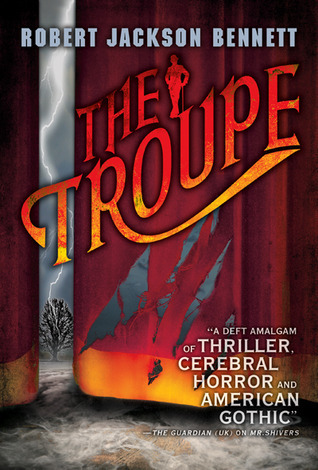What do you think?
Rate this book


500 pages, Kindle Edition
First published February 21, 2012
“What I’m going to do up here, kid, is tell you a story. Like all stories, it’s an attempt to make sense of something larger than itself. And, like most stories, it fails, to a certain degree. It’s a gloss, a rendition, so it’s not exact. But it’ll do.”
“Sometimes the last walk is all that’s left.”
“Every inch was a battle, every step a war.”
“If you were to inspect my shoes, you would find on their soles the soil of a thousand countries. My many coats have soaked up the salty air of all the seven seas. Were you to see my dustbin you would find a dozen hats, all drained of color by distant suns. There are the lengths I have gone to to procure our world’s greatest treasure, our most precious resource, our most secret and unpredictable wonder… Entertainment.”
“I think art… I think it’s making something from nothing, basically. It’s taking something as simple as a movement, or a few notes, or steps, or words, and putting them all together so that they’re bigger than what they ever could have been separate. They’re transformed. And just witnessing that transformation changes you. It reaches into your insides and moves things around. It’s magic, of a sort.”
“I’ve come to some decisions recently, you see, and I think… I think that, even though existing is very painful sometimes, and very confusing, I think I would like it to… go on.”
“But sometimes people just leave, kid. You can’t let the leaving or the absence rule you. We must all be the authors of our own lives now.”
“Things do not stop. They move on without us. It is a truth so great that most people must invent and live lies to deny it.”

